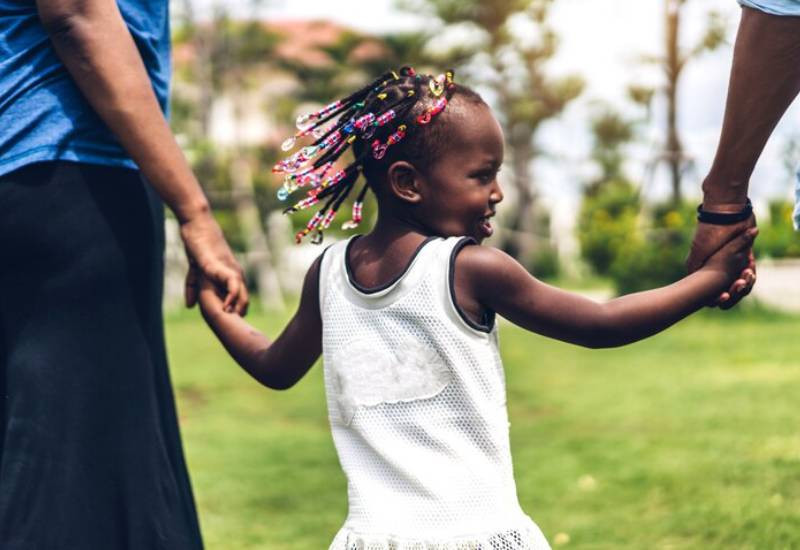
President Uhuru Kenyatta Monday made a historic address to the Ugandan Parliament, where he lauded steps being made in the East African region’s economic progress.
Here is his verbatim speech:
I am glad to be here today. Thank you for giving me the honour to address this August House. I speak to you as your closest neighbour, as a steadfast friend in a turbulent world, and a committed partner in our historic task of building a lasting union that is secure and prosperous.
It is my intention today to share with you a glimpse of the destiny that awaits us.
So that strengthened by its splendour, we can stand together to defend it with every ounce of our collective strength.
To attain that bright future however, demands we pay heed to where we come from, to what has forged us into the independent and ambitious Africans of Kenya and Uganda.
Honourable Members,
We rose as independent nations from the ruin and carnage of colonialism. From the damage to our bodies that the coloniser, and before him the slaver, inflicted to try and break our spirits.
From his considerable attempts to permanently undermine our sense of self-worth, and our independent spirit.
However, we did not break. There had been civilisations for millennia throughout Africa before the colonial misfortune came upon us. Our people had ruled themselves, inventing and innovating social formulas that became the traditions underlying humane and just societies.
They had traded with one another, explored each other’s lands, and signed treaties of peace with one another.
For generations without count, we had raised brave warriors ready to make the ultimate sacrifice on behalf of their people.
From these enduring qualities, we rejected and then defeated colonialism. Having done so, we did not go back to re-live the nations of the past. Instead, we forged new nation-states, expanded our sense of national identities, and adopted grander visions than had ever been known.
The greatest of them is the African Union whose goal for a half-century has been to erase the borders between us that were drawn in distant imperial capitals.
It is in the East African Community where this great African dream is becoming realised most concretely. It is the fastest integrating region in Africa, and one of the fastest in the world.
Kenya and Uganda as each other’s leading trade and investment partners are at the heart of this integration. Our Northern Corridor Integration projects have led the way.
One example is the Standard Gauge Railway, whose construction, starting in Mombasa, is progressing on schedule.
On its completion, it will dramatically reduce cargo transport costs by 60% to the benefit of Ugandan businesses, farmers and consumers alike.
Kenya is expanding the port of Mombasa and taking strong steps to rapidly improve its efficiency to global standards. We are also going ahead with the development of the LAPSSET project, which will offer the region yet another world-class outlet for its goods. These infrastructure efforts are driven by the recognition that with Uganda as our neighbour and largest trading partner, we must prosper together.
We are also working to exponentially increase power generation in both our countries, while looking to make transmission and interconnectivity reliable and broadly accessible.
We are going to build pipelines for crude oil and refined petroleum products, as well as to join you, alongside our other East African partners, in the development of an oil refinery here in Uganda whose impact will be regional.
Our governments have worked together to ensure that our borders are far more efficient and people friendly, meaning that our citizens, businesses and investors are becoming ever closer.
Ladies and Gentlemen,
These are important initiatives but they are only a start to a long journey that we are taking together.
Our destination, to put it simply, is to become a region of dignified, secure, and prosperous people governed democratically and justly.
How we achieve it is by understanding and playing our respective roles as branches of government, the citizenry, the political opposition, civil society, and the private sector.
I suggest to you that our different efforts, at this time in our history, must be united in seeking, above all else, prosperity for all our people.
Every endeavour we undertake, every dream that we have is impacted by a single reality: That fifty years into our independence we are yet to fully achieve the social-economic aspirations of our people. This is not to say we have not made progress, but much more needs to be done.
Changing this reality is our generational responsibility. In the lifetime of all you sitting here, we have been witness to the fastest sustained economic growth in human history.
Its benefits have been felt most in Asia, and particularly in the countries of the greater Indian Ocean Rim. We have observed from afar countries travel from the wretched poverty too many of our people still suffer, to great wealth in two generations.
We are now growing at the same pace the Asian tigers did.
We understand that the only way to catch up with them is to produce more goods and services that are globally competitive, to trade more regionally, and to access exponentially greater amounts of investment. Our partnership as countries is critical in making this happen.
A connected Kenya and Uganda today are part of that Indian Ocean Rim whose markets, investment and technological know-how have changed the power balance in the world. It has helped harness an African interior with a rising middle class, precious natural resources and societies eager for economic transformation.
Our political, economic and security partnership will be the key to ensuring that East Africa becomes the hub that brings these two worlds together. Adding to this dynamic axis will be the deepening of our trade and investment ties to the markets of Europe and North America.
The coming East Africa will be a leading global choice for investment because of our determination to forge a single, uninterrupted market governed by business rules that allow enterprises to be secure and cost efficient.
Our growing youth population will draw the world’s manufacturers, banks, technological companies, and a host of others. Its education, connectivity to the world, and aspiration to a better tomorrow will give us a globally competitive labour market.
Honourable Members,
In order for this project to prosper, we must secure it from its enemies and detractors. In this task, we will draw shared purpose made stronger by the bonds of brotherhood between the people of East Africa.
What better example than our ex-Vice President Moody Awori whose brother is none other than Aggrey Awori, a distinguished MP here in Uganda. Our people are to be found on both sides of the borders, interacting and living together as one. There are the Kurias who straddle both sides of the Kenya/Tanzania border at Icebania; the Maasai in Namanga; and the Bagisu and Samia on both sides of the Kenya/Uganda border.
And who can forget Stephen Kiprotich when he won marathon gold during the 2012 London Olympics? Kenyans as one celebrated yet another of our runners winning at the highest level.
Only for it to turn out that he is Ugandan. This is who we are: a people virtually indistinguishable from one another!
It is such shared identity and people-to-people links that form the sinews and muscles of our partnership. We will need this partnership more than ever in the coming years. We have challenges on every side.
Our armies stand shoulder-to-shoulder in Somalia. Battling a foe whose only aim is the destruction of hope and the bitter division of our people according to their faith.
These extremists who use faith as an excuse for their evil ambition to enslave and conquer our people are on the march globally. We will forge an even more powerful security framework to ensure that they do not have the space to operate in the region. Our neighbours South Sudan, Somalia, Burundi and Congo are facing dire security challenges.
Our dream of becoming a prosperous hub that connects them to the world will never become a reality if they continue suffering from serious instability. Kenya and Uganda must work together closely to forge the security and stability that can be turned into sustained peace.
This is particularly true of Burundi. Within the East African Community, we are working hard to secure the peace in Burundi, and we will remain on the frontline to ensure it is realized.
At home the corrupt, criminals, and the purveyors of ethnic hatred accost us. We must build robust institutions that can face and defeat these enemies of our progress. Corruption especially, damages our ability to grow at the pace we desire. We in Kenya and Uganda must remain steadfast in fighting this vice because it is one that we must win.
If we are indeed to be a single uninterrupted market, our institutions will need to converge around common standards of excellence and effectiveness.
This requires that our parliaments, judiciaries, and ministries remain in constant contact, guided by a strong desire to keep pace with one another.
Mr Speaker,
Let me be clear. These challenges are the other side of the coin to peace and prosperity. We must own these challenges because it is in solving them that we will forge the countries and region that we desire.
So please do not take my comment on them as occasion to engage in the negative tendency of too many of us to lament as if we are helpless. We are not.
I stand before a Parliament representing the incredible vitality and desire for self-improvement of the Ugandan people. I am the President of a nation that shares precisely those attributes.
On the subject of the role of our young people in our future, I want to be especially clear. They are NOT a youth bulge that threatens war and misery. Instead, they are tomorrow’s entrepreneurs and workers in world-class enterprises.
They pray to make an honest wage for an honest day of work. They are a brave multitude that will defend our communities, countries and regions from terrorists and criminals.
I have no doubt that it is NOT gold or oil or other precious minerals buried in our soil that will make us wealthy. In our young population, we have the world’s most precious resource.
Less than two weeks ago, I co-hosted the Global Entrepreneurship Summit. Young men and women from throughout the continent and all over the world were represented.
They had in common budding entrepreneurial success that came from their ability to recognise opportunity where most others see challenges. Their spirit and ability to transform our region is no better exemplified by the story of Clara Masinde.
This young woman has brought hope to thousands of women by offering a way out of obesity and helping them to restore good health. She has done this by building Fat Loss Laboratory East Africa. The business has grown by 400 percent in the last couple of years and is spreading throughout Kenya and East Africa.
Then there is a the story of Michal Macharia, who at 25 years of age, founded SevenSeas Technologies that now has over 100 employees in East, West and Southern Africa, and has pushed outside Africa through acquisitions and partnerships. This business is testament to the power of a pan-African and global vision by a young East African.
Here in Uganda, large multinationals like Coca Cola and Pepsi are being given a run for their money by Yasser Ahmed of Riham Soda. Along the way, he has produced over 1000 jobs for Ugandans and shown that we have what it takes to be competitive and ambitious enough to take on global players.
Our historic task is to make the way for them and the tens of thousands yearning to join them. We will do this by removing the barriers to their building thriving, growing enterprises.
We will know we have succeeded when taxes are low enough to allow them to compete and grow, contracts are enforceable, and rent-seeking and red-tape are made impediments of the past.
Honourable Members,
It is your duty as legislators to help bring this reality into being.
I urge you to regard this duty of ensuring widespread economic participation, in this era of our history, to be as important as the drive to broaden political participation. Economic marginalisation is not merely the citizen’s distance from government services, it is the inability to have a good idea and get through the painstaking developmental steps of taking it to market.
When all branches of Government, and indeed all of society, works together to achieve this vision, we will unleash a great wealth-building machine.
Our strong economic growth will transform into a vibrant ecosystem of productive enterprises that provide decent employment and hope for all.
Brothers and Sisters,
Africans say that "if you want to go fast, go alone. But if you want to go far, go together. ”This proverb applies to our East African Community. We have travelled far to achieve a common market and a single customs union. Yet these were but transitional stages to and integral parts of a subsequent Monetary Union, and, ultimately, a Political Federation. The different parts are all interconnected in the long run, and need one another.
Their implementation will mean the attainment of a grand Pan African dream of eliminating the remnants of colonial borders and bringing our people together. The Federation that will emerge will be prosperous and secure, it will be a powerful member of the community of nations. It will be able to defend our interests much more robustly and successfully than individual states can manage at the moment.
I want to commend President Museveni for his steadfast dedication to this cause of an East African Federation. He has inspired us leaders and millions of other East Africans.
I hope that all of us, and particularly the leadership, truly understand that alone we will only go so far. But together, we can scale the global heights and bring the African back to the peak of achievement he enjoyed when he looked on the world from the mighty pyramids.
Ladies and Gentlemen,
As I come to a close, I cannot finish without speaking of the future of democracy in our region. For the last half century, it has had trouble flourishing in our region.
Frustrated by the ups and downs of building new countries from rotten colonial foundations, contending with the geopolitics of the Cold War, and some selfish leadership. But this does not mean that democracy is alien to us. Not by any means. The values of open consultation, debate, and accountability of leadership are old in Africa.
The Councils of Elders who guided us, the counsellors to Kings and Queens who spoke up for the people without fear of censure. The long-lasting elders’ consultations under trees seeking wise consensus. Our democratic sensibility is no foreign import.
It is a central part of our diverse cultures, and now only need be updated for the new national and regional identities we have built since independence. So it was in the past, so it will be in the future.
Yet even as we recognise this truth, we know from bitter experience, in recent global history, that attempts to impose democracy have led to mass atrocity and state failure. There is no appropriate one-size-fits-all approach, nor should there be attempts to turn countries into similar copies.
In our region, there are countries that have been torn apart by violence brought on by deep ethnic or racial enmity. They now seek, above all, stability, security, and economic growth. That is understandable, and we must support them.
In time however, they too must embrace the full democratic character that is part of our African heritage. That is to say, Ladies and Gentlemen, that even as we all tread different roads, our destination is to become full democracies whose leaders are subjected to the people’s will as it is expressed by the ballot.
Kenya has travelled this difficult path. At great cost and pain, we have worked to internalise the principle that political opposition is not enmity. However, this is not only a principle limited to those in power. The opposition itself must not exploit democratic freedoms and its legitimate platform to try and delegitimise government and undermine the peoples’ will. It should be patriotic, and loyal to the stability and effectiveness of government even as it opposes policies and offers different remedies.
Democracy does not mean that we should make political and civil society careers of using distortions, narrow lens and even outright lies to paint our countries as failures.
It does not mean campaigning on crude ethnic terms to divide people, and even trigger violence so as to be rewarded with government positions. We must be able to make political progress without destroying our countries in the process.
A living democracy is anchored in love of country, respect for those with different views, an adherence to debate based on facts, and a willingness to learn from one another.
This is its African character, which we must all, whatever means we use to get to it, embrace fully as East Africans.
Mr Speaker,
Honourable Members
As I finish, let me thank Uganda from the bottom of my heart for the sacrifices you have made so willingly in the course of regional security. There are Ugandan heroes outside this country today who are sacrificing to make our region safer. Kenya applauds them, we stand with them, and we pray that they may return home safe.
I also want to congratulate President Museveni’s government for producing such a successful presidency of the United Nations General Assembly. Honourable Sam Kutesa deserves special applause for so ably guiding the General Assembly as its president during this historic 69th Session. Under his watch, the 193 members of the UN agreed on a Post-2015 Development Agenda covering ambitious sustainable development goals. East Africa’s contribution to this achievement has been immense.
Kenya is proud that the tough debates that went into crafting the Sustainable Development Goals and the post-2015 Development Agenda were co-chaired by our Ambassador to the UN in New York.
Such achievements go to show the heights we can achieve as a region when we work together, and aim to change the world for the better.
I look forward to continuing to work with President Museveni to ensure that East Africa’s children enjoy happier, more peaceful and prosperous lives.
Thank you and God bless you.
 The Standard Group Plc is a multi-media organization with investments in media platforms spanning newspaper print
operations, television, radio broadcasting, digital and online services. The Standard Group is recognized as a
leading multi-media house in Kenya with a key influence in matters of national and international interest.
The Standard Group Plc is a multi-media organization with investments in media platforms spanning newspaper print
operations, television, radio broadcasting, digital and online services. The Standard Group is recognized as a
leading multi-media house in Kenya with a key influence in matters of national and international interest.










